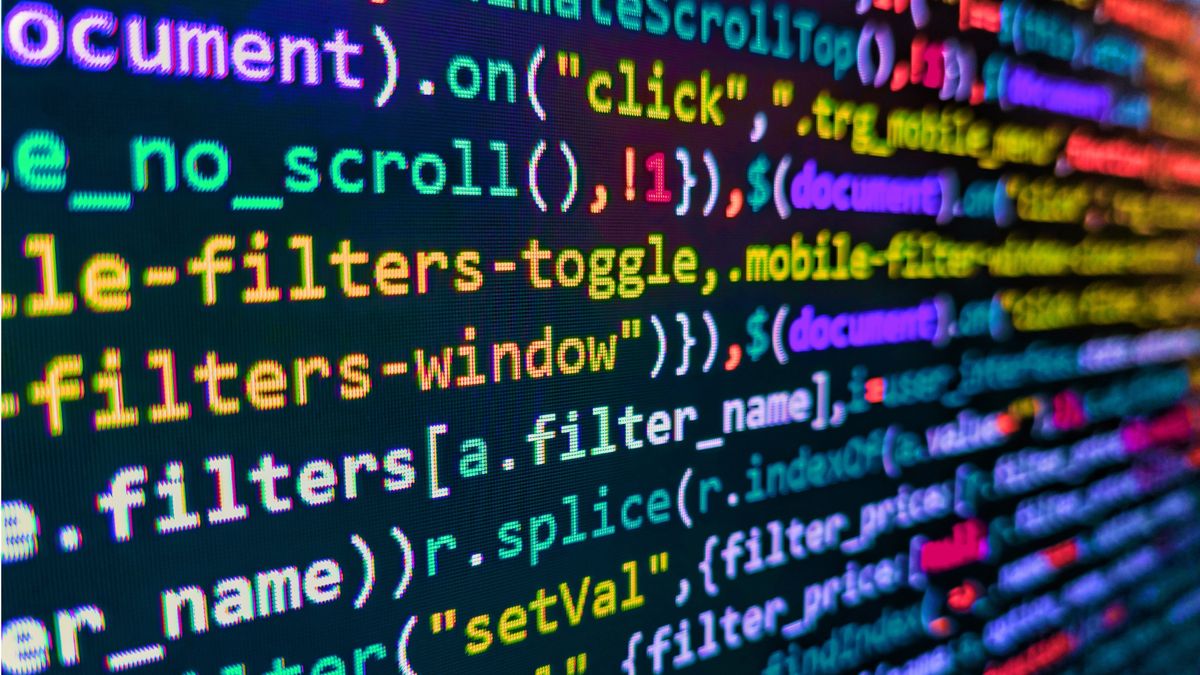What is Coding?
Coding, also known as programming, is the process of creating instructions for computers to follow. These instructions, written in various programming languages, enable computers and software to perform specific tasks.
Coding is the backbone of the digital world, influencing everything from the apps on our smartphones to the complex algorithms driving artificial intelligence (AI).
As our reliance on technology continues to grow, so too does the importance of coding, making it a fundamental skill in today’s digital age.
The Basics of Coding
At its core, coding involves writing scripts or programs in a language that a computer can understand. These languages vary in complexity and purpose, ranging from basic markup languages like HTML (Hypertext Markup Language) to advanced languages like Python, Java, and C++.
Each language has its own syntax and rules, which programmers must follow to create functional code.
A programmer writes code in a text editor or integrated development environment (IDE). The code is then compiled or interpreted into machine language, which the computer’s hardware can execute.
The process of writing code often involves debugging, where the programmer identifies and fixes errors to ensure the program runs smoothly.
Types of Programming Languages
There are several types of programming languages, each designed to address specific needs:
- Low-Level Languages: These include machine language and assembly language, which are closest to the computer’s hardware. They provide the highest level of control over system resources but are more difficult to write and understand.
- High-Level Languages: These are more abstract and easier for humans to read and write. Examples include Python, Java, and C++. High-level languages are designed to be portable across different systems, making them more versatile.
- Markup Languages: These are used to define the structure and presentation of content on the web. HTML and XML (eXtensible Markup Language) are examples of markup languages.
- Scripting Languages: These are typically used for automating tasks within software environments. Examples include JavaScript, PHP, and Ruby. Scripting languages are often used in web development and server-side applications.
- Domain-Specific Languages: These are tailored to specific application domains. SQL (Structured Query Language) is a prime example, used specifically for managing and querying databases.
The Evolution of Coding
The history of coding dates back to the early 19th century, with the invention of the first programmable machine, the Jacquard loom, which used punch cards to control the weaving of patterns. This concept of programmable instructions laid the foundation for modern computing.
In the mid-20th century, the development of electronic computers brought coding into the mainstream. Early programmers used machine language, writing programs in binary code (a series of 1s and 0s). As computers evolved, so did programming languages. The introduction of assembly language allowed programmers to use mnemonic codes instead of binary, simplifying the coding process.
The 1950s and 1960s saw the development of the first high-level programming languages, such as Fortran and COBOL. These languages made coding more accessible, allowing more people to learn and apply programming skills. Over the decades, programming languages have continued to evolve, becoming more powerful and user-friendly, enabling the development of complex software and systems.
The Importance of Coding in Today’s World
Coding is essential in the modern world, as it underpins almost every aspect of our daily lives. From the moment we wake up and check our smartphones to the time we go to bed, we interact with technology powered by code. Here are some key areas where coding plays a crucial role:
- Software Development: Every piece of software, from operating systems to mobile apps, is created using code. Software developers use programming languages to write the instructions that enable software to perform specific tasks. This includes everything from word processors and video games to complex enterprise systems.
- Web Development: The internet as we know it is built on code. Web developers use languages like HTML, CSS (Cascading Style Sheets), and JavaScript to create websites and web applications. These technologies enable the creation of interactive, dynamic websites that we use for everything from social media to online shopping.
- Data Analysis and Machine Learning: Coding is central to the fields of data science and machine learning. Data scientists use programming languages like Python and R to analyze large datasets, extract insights, and build predictive models. Machine learning, a subset of AI, relies on code to train algorithms that can make decisions or predictions based on data.
- Automation: Coding enables the automation of repetitive tasks, improving efficiency and reducing human error. For example, scripts can be written to automate data entry, file management, and even complex business processes. Automation is widely used in industries such as manufacturing, finance, and logistics.
- Cybersecurity: Coding is essential for cybersecurity professionals who develop tools and protocols to protect systems from cyber threats. This includes writing code for encryption, intrusion detection, and secure communications. Cybersecurity experts also use coding to analyze malware and reverse-engineer attacks.
- Education and Learning: Coding is increasingly being taught in schools as a fundamental skill, much like reading and writing. Learning to code helps students develop problem-solving abilities, logical thinking, and creativity. It also opens up opportunities in a wide range of careers.
The Impact of Coding on Society
The widespread adoption of coding has had a profound impact on society, transforming industries, economies, and the way we live our lives. Here are some of the most significant ways coding has shaped the modern world:
- The Digital Economy: Coding has been a driving force behind the growth of the digital economy. Tech companies like Google, Amazon, and Facebook have built their empires on code, creating new business models and reshaping industries.The rise of e-commerce, digital marketing, and online services has created millions of jobs and generated trillions of dollars in economic value.
- Innovation and Disruption: Coding has enabled innovation across various fields, leading to the development of new products, services, and technologies. From smartphones and wearable devices to electric vehicles and smart cities, coding is at the heart of technological advancements that are changing the way we live and work.This innovation has also led to the disruption of traditional industries, as new, tech-driven companies challenge established players.
- Global Connectivity: The internet, powered by code, has connected people across the globe, enabling instant communication, collaboration, and access to information.Social media platforms, video conferencing tools, and online communities have transformed how we interact with one another, breaking down geographical barriers and fostering global collaboration.
- Healthcare and Medicine: Coding has revolutionized healthcare, leading to the development of advanced diagnostic tools, medical devices, and treatment options. Electronic health records (EHRs), telemedicine, and health monitoring apps are all products of coding, improving patient care and outcomes.In addition, coding is used in genomics and bioinformatics to analyze genetic data, paving the way for personalized medicine.
- Entertainment and Media: The entertainment industry has been transformed by coding, with video games, streaming services, and digital media becoming dominant forms of entertainment.Code drives the creation of immersive video games, high-quality digital effects, and on-demand content delivery. This has changed how we consume media, offering more personalized and interactive experiences.
- Education and Lifelong Learning: Coding has democratized education, making learning more accessible to people around the world. Online learning platforms, coding bootcamps, and educational apps provide opportunities for individuals to acquire new skills and advance their careers.Coding has also enabled the development of educational tools and resources that enhance traditional learning methods.
The Future of Coding
As technology continues to advance, coding will play an even more critical role in shaping the future. Emerging technologies like artificial intelligence, quantum computing, and the Internet of Things (IoT) will require new coding paradigms and languages to unlock their full potential.
- Artificial Intelligence and Machine Learning: AI and machine learning are poised to revolutionize industries by automating complex tasks and enabling intelligent decision-making. Coding will be essential in developing the algorithms and models that power these technologies.As AI becomes more integrated into everyday life, the demand for skilled programmers who can work with AI will continue to grow.
- Quantum Computing: Quantum computing, which leverages the principles of quantum mechanics to perform computations far beyond the capabilities of classical computers, is still in its early stages.Coding for quantum computers requires a deep understanding of quantum theory and the development of new programming languages. As quantum computing technology matures, it has the potential to solve problems that are currently intractable, such as simulating complex molecules for drug discovery.
- The Internet of Things (IoT): The IoT refers to the network of connected devices that communicate and exchange data over the internet. Coding is central to the development of IoT applications, from smart homes to industrial automation. As more devices become interconnected, the need for secure, efficient, and scalable code will be paramount.
- Ethical Considerations: As coding becomes more pervasive, ethical considerations will play a crucial role in shaping the future of technology. Programmers will need to consider the societal impact of their code, particularly in areas like privacy, security, and bias in AI algorithms.The development of ethical coding practices and guidelines will be essential in ensuring that technology benefits society as a whole.
- Coding Education: The demand for coding skills will continue to rise, making coding education a priority for individuals and institutions alike. Governments, educational institutions, and private organizations will need to invest in coding education to ensure that the workforce is equipped with the skills needed for the digital economy.This includes promoting diversity in tech and providing opportunities for underrepresented groups to learn coding.
Conclusion
Coding is more than just a technical skill; it is a fundamental aspect of the modern world that drives innovation, shapes industries, and influences our daily lives. From software development to AI and beyond, coding is at the heart of the digital revolution.
As we move into an increasingly connected and automated future, the importance of coding will only continue to grow. Whether you’re a student, a professional, or simply a curious learner, understanding coding is key to navigating and thriving in the digital age.



